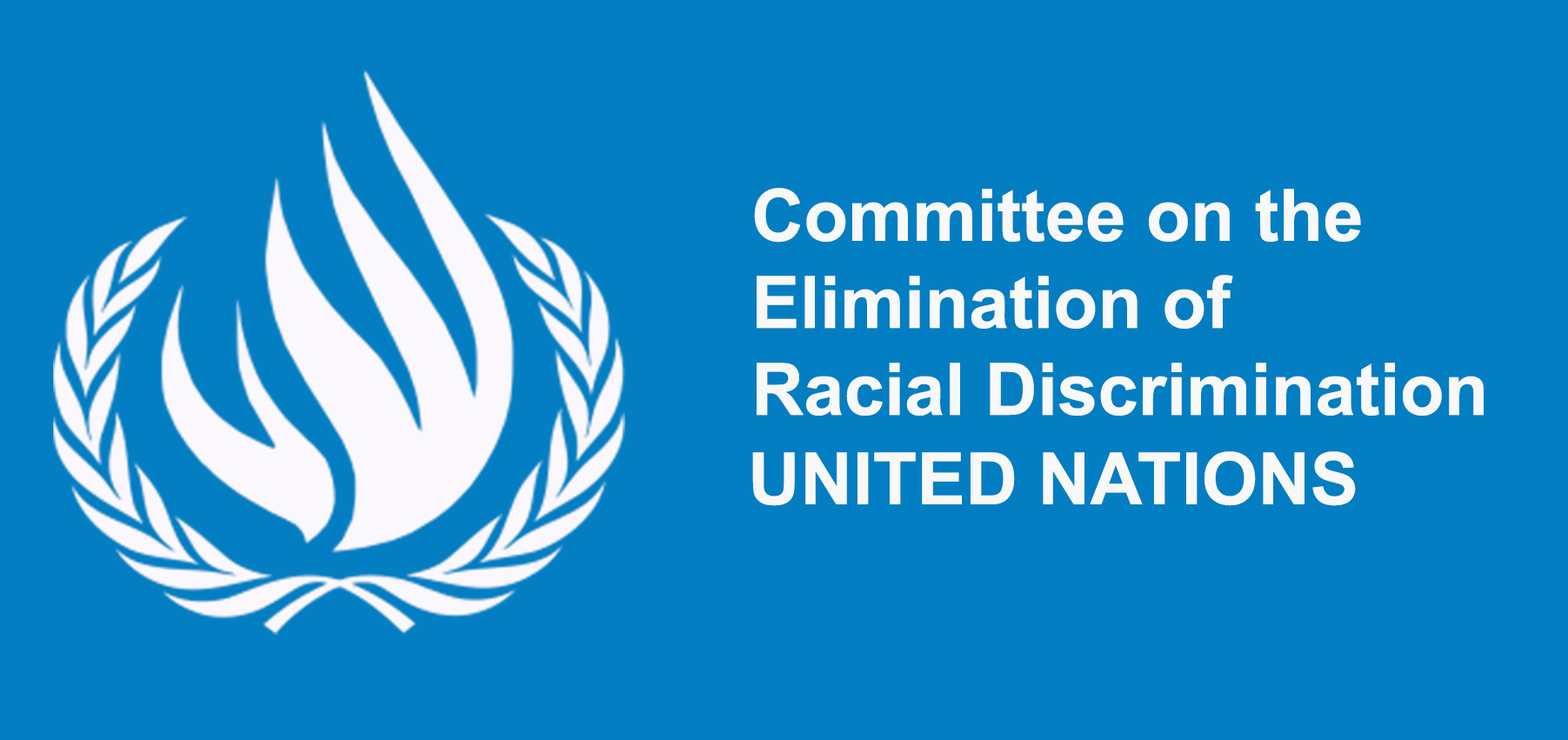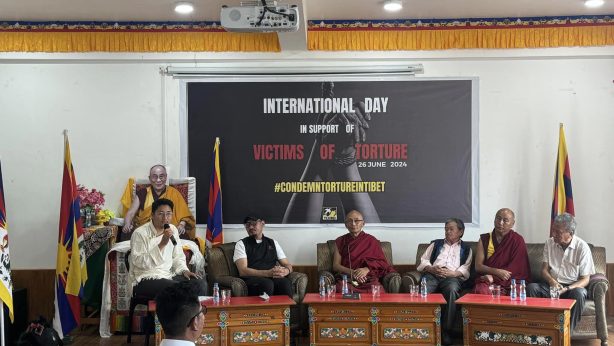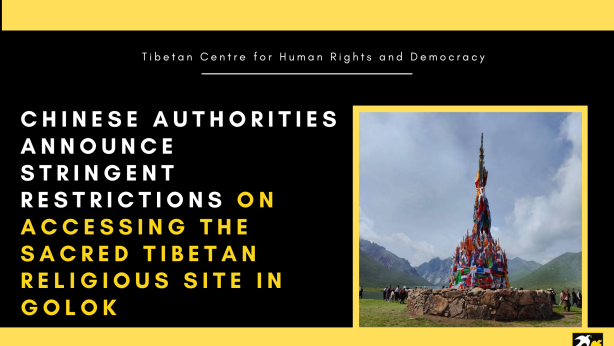UN Committee on racial discrimination concerned about human rights situation of Tibetans
 The Tibetan Centre for Human Rights and Democracy (TCHRD) welcomes the review of People’s Republic of China (PRC) by the UN Committee on the Elimination of Racial Discrimination (‘Committee’) that took place on 10 and 13 August in Geneva. The Committee subsequently released the findings of the review known as ‘concluding observations’ on 30 August.
The Tibetan Centre for Human Rights and Democracy (TCHRD) welcomes the review of People’s Republic of China (PRC) by the UN Committee on the Elimination of Racial Discrimination (‘Committee’) that took place on 10 and 13 August in Geneva. The Committee subsequently released the findings of the review known as ‘concluding observations’ on 30 August.
Prior to the review, TCHRD submitted a civil society report to the CERD Committee to provide an alternative assessment of PRC’s compliance with the Convention on the Elimination of All Forms of Racial Discrimination. The report highlighted policies and practices that perpetuate persistent discrimination and marginalisation among Tibetans leading to human rights violations and abuses such as increased and discriminatory restrictions on movement, arbitrary detention, torture including custodial death, disempowered development, poverty, and violations of language rights. In a separate petition under the ‘List of Issues’ to the Committee on behalf of Nyima Lhamo, TCHRD provided detailed information on the custodial death of Tenzin Delek Rinpoche and called for an investigation into the death of Tenzin Delek Rinpoche and to make public the results of such investigation. The Committee was also urged to ensure that such an investigation is thorough, impartial, independent, and include some public scrutiny.
The Committee highlighted 21 major areas of concern and relevant recommendations, which included development and poverty reduction, resettlement and land expropriation, education, health, civil society, definitions of terrorism and separatism, torture and ill treatment, and the situation of Tibetans, Uyghurs and Mongolians.
While expressing concerns over freedom of movement and language rights of Tibetans, the Committee recommended that PRC:
- Revise its regulations and practices to ensure non-discriminatory determinations on passport applications and freedom of movement for Tibetans who would like to travel within and beyond Tibet Autonomous Region and abroad;
- Preserve the Tibetan language in Tibet Autonomous Region by, inter alia, encouraging and promoting its use in the fields of education, the judicial system, and the media; and
- Provide information regarding the promotion of, and any restrictions on the use of, ethnic minority languages.
In light of Tibetan language advocate Tashi Wangchuk’s recent conviction on trumped up charges of ‘inciting separatism’, the Committee expressed concerns over significant restrictions on the use and development of Tibetan language, as well as criminalisation of Tibetan language advocacy. In particular, the Committee highlighted the absence of access to Tibetan language translations during Chinese court proceedings; this became clear most recently in January this year when Wangchuk’s trial proceedings were conducted entirely in Chinese.
During the interactive dialogue of the review on 13 August, Committee experts raised concerns over the detrimental effect of PRC’s implementation of bilingual education on minority languages. The experts were equally concerned about the quality of and access to education in minority areas.
Broad definitions of terrorism and separatism
Concerned by the use of overbroad and vague definitions of terrorism, extremism and separatism in Chinese legislation to criminalize peaceful civic and religious expression particularly among minority nationalities such as Tibetans, Uyghurs and Mongolians, the Committee recommended that PRC:
- Review existing relevant laws, regulations, and practices, in order to ensure that they are narrowly tailored,
- That there are effective monitoring mechanisms and sufficient safeguards against abuse,
- And that they are implemented in a manner that does not constitute profiling or discrimination on the grounds of race, colour, descent, nationality, ethnicity or ethno- religious identity.
The Committee further requested PRC to provide in its next periodic report ethnicity-disaggregated statistics on prosecutions, convictions, sentences and other sanctions for crimes related to terrorism, separatism and extremism.
Torture and custodial deaths
Despite denial from PRC that it has engaged in torture and ill treatment, the Committee was concerned about torture and ill treatment of Tibetans, Uighurs and other ethnic minorities, peaceful political protestors and human rights defenders. In this regard, the Committee made the following recommendations:
- Strengthen measures to prevent acts of torture and ill-treatment committed against members of ethnic minorities, including by improving their access to lawyers;
- Ensure that all custodial deaths, allegations of torture and ill-treatment, harassment and reported use of excessive force against members of ethnic minorities are promptly, impartially and effectively investigated by an independent mechanism, and that perpetrators are brought to justice;
- Allow independent experts to conduct an investigation into the deaths of members of ethnic minorities in custody;
- Fully implement the recommendations contained in paragraph 41 of the 2015 concluding observations of the Committee against Torture;
- Take all necessary measures to provide a safe environment for those working to protect and promote human rights
Health Disparities
While noting the PRC’s official report on increased health care funding and service provision in minority areas, the Committee pointed out poor access to health care, including pre-natal care and recommended PRC to “strengthen its efforts to address health disparities affecting certain minority ethnic groups, including by addressing the obstacles that hinder their access to affordable and adequate health care, taking into consideration the difficulties posed by their geographical location.” The Committee also requested PRC to “gather and provide to the Committee in its next periodic report statistics, disaggregated by ethnic and national origin, on a wide range of health indicators, including on life expectancy.
TCHRD’s 2015 report on maternal and child health showed that conditions in rural and remote areas and the Tibet Autonomous Region (TAR) are particularly poor, and consistently express drastic disparities with conditions with the PRC on average. In 2009, maternal mortality in TAR was eight times higher than in the PRC on average, infant mortality was nearly three times higher, and severe child malnutrition was over twice as high. In 2012, life expectancy in the TAR was 8.5 years shorter than in the PRC on average.
Forced eviction and nomadic resettlement
The Committee was also concerned that large numbers of farmers and nomads were losing their traditional lands and livelihoods due to “aggressive development models” such as “poverty-alleviation and ecological restoration resettlement measures”. In this regard, the Committee invoked two specific recommendations on forced evictions and resettlement of nomadic persons contained in the concluding observations on PRC’s second periodic report by the Committee on Economic, Social and Cultural Rights in 2014 (see paragraphs 30 and 31). In cases of resettlement in minority areas, the Committee further recommended that PRC authorities “work closely and effectively with ethnic minority government officials and communities, and provide financial allowances that ensure an adequate standard of living, as well as livelihood restoration measures and, where needed, linguistic and cultural integration assistance.”
Development and poverty reduction
The Committee expressed concern over poverty-related inequality and PRC’s failure to collect ethnicity-disaggregated statistics on poverty. It further requested PRC to provide in its next periodic report “updated poverty rate statistics and other indicators, disaggregated by ethnic and national origin, revealing the enjoyment of economic, social and cultural rights, revealing the effectiveness of measures taken, including through the National Human Rights Action Plan 2016-2020.” While welcoming PRC’s so-called commitment to a “people-centered development approach” in the Plan, the Committee urged PRC to ensure the inclusion of human rights in its people-centered approach to development.
Civil society crackdown
Cognizant of widespread and systematic crackdown on civil society in recent years in PRC, the Committee noted with concern the drastic decrease in the number of non-governmental organisations and other civil society organisations due to the misuse of various laws such as the Law on Administration of Activities of Overseas Nongovernmental Organizations in the Mainland of China and the Charity Law. The Committee, while reiterating the important role played by civil society in eliminating racial discrimination and other human rights violations, called on the PRC to ensure, among others, that its laws and regulations provide an open space for civil society and specifically for non-governmental organisations working to combat racial discrimination, and improve transparency of NGO registration procedures.
The Committee emphasized that its observations on the absence of any comprehensive definition of racial discrimination in Chinese law, overbroad and vague definitions of terrorism and separatism, and torture and ill-treatment should be considered with particular importance by PRC.
During the 13 August interactive dialogue, PRC’s permanent representative to the UN Yu Jianhua claimed that Chinese constitutional amendments in March 2018 “reflected more fully the ethnic policy focused on ethnic equality and solidarity, and that the ethnic legal framework had taken shape, underpinned by the Constitution and the Law on Regional National Autonomy.” In reality, the latest constitutional amendments were primarily aimed at further boosting the arbitrary or unrestrained exercise of power by the authoritarian party state led by Xi Jinping. For instance, paragraph 2 of Article 1 of the Constitution now reads, “The defining feature of socialism with Chinese characteristics is the leadership of the Communist Party of China.” Another revision repealed the term limits for the PRC’s president and vice president ending earlier provision that allows both leaders to not serve more than two consecutive five-year terms.


